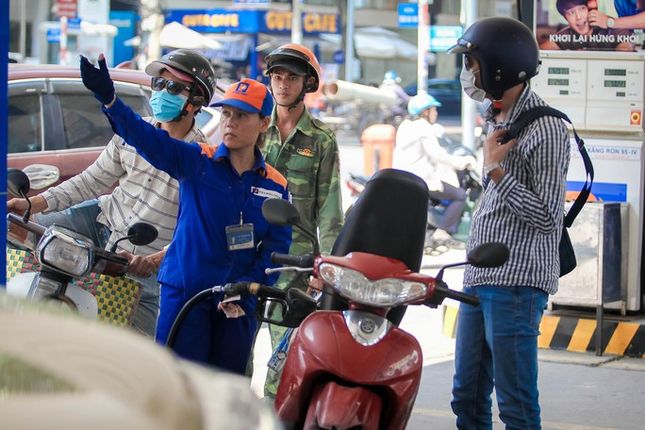Many new points prevent false reports
The Ministry of Industry and Commerce has just presented to the government the sixth draft of the decree on the oil business with a series of strong adjustments to remodel the structure. Petroleum market compared to previous drafts, it is evaluated that this draft has many regulations aimed at promoting competition and managing the market using data …
One of the new points of the project is the mandatory regulations that large marketers must supply a total minimum of 100,000m³/year of gasoline or oil, under penalty of revoking their licenses. It is a regulation of selection that helps the market to eliminate weak companies that only have licenses but do not have sufficient supply capacity. Previously, many license companies operated at a low level, which distorted the market.
This bill also stipulates that companies must connect their data in line with the Ministry of Industry and Commerce on inventories and imports and exports, which constitutes a strong technical barrier that avoids “false reports” or “hoarding and complaint of scarcity.” For wholesale merchants, the project includes provisions to reduce conditions on the number of stores in the system.
This project also allows distributors to buy gasoline from other distributors, unlike the five previous projects that prohibited it.
In particular, the new project stipulates that wholesale and distributors can self -admission their retail prices every Thursday, provided they do not exceed the maximum price calculated according to the formula (retail price = Origin cost + commercial cost + benefit + value -added tax).
This regulation is considered to point to a more competitive market, limiting the situation of “virtual loss, real gain” due to the deficiencies of the operational mechanism in the past. However, the decree project also grants many rights to key merchants, from deciding and announcing Retail prices, control of internal distribution systems, until the coordination of national and imported supplies.
The risk of large companies to dominate
-Talk to PV Tien Phong the economic expert Ngo Tri Long said that the gasoline market in Vietnam currently has no perfect competition. According to Mr. Long, the Competition Law currently stipulates that a company with a market share of 30% or more in the market, or a group of 2 or 3 companies with a total market share of 50% or more, or 4 or more companies with a total market share of 75% or more, is considered a dominant company in the market. In the current Vietnamese oil market, two large state companies represent about 70% of the market share alone.
“The market is still dominated by companies, so if they are allowed to decide their own sales prices, a domination and a risk of market manipulation will be generated in case of poor control. In addition, small businesses will be eliminated from the market if large companies apply sales prices under the cost to eliminate competition,” said Mr. Long, adding that this against the principles of the law of competence by prohibiting the dominant companies. Sales and services sales prices, impose unfavorable commercial conditions on their partners, etc.

The director of a large northern oil company said that currently several key merchants have an overwhelming participation in the oil import and distribution market and at the same time control retail chains through branches, subsidiaries or exclusive agency contracts.
Without a mechanism that avoids cross links and transparent management of franchises, the possibility that “great” regulate the market in a direction that benefits them is totally possible and legalized.
According to this person, a wholesale merchant owner of stores, ports, means of transport and retail chains can completely master the market of a town. By just applying a differential discounts policy or stop supplying goods for a period of time, that company can expel small competitors from the “race”.
In particular, while wholesale merchants are allowed to import and authorize with flexibility, distributors have a limited supply, they cannot import goods by themselves or negotiate with national refineries. This imbalance makes small distribution companies vulnerable to being “strangled” by the contractual conditions imposed by large suppliers …
“In the phase oil crisis The lesson will be clear in the late 2022 and early 2023. If a few companies maintain the offer but give signs to stop accepting products or selling with negative discounts, the market immediately falls into chaos. “If we only trust the license numbers without knowing who really controls the supply chain, the regulatory agency will always be in a passive position,” he said.
Fuente: https://baoquangninh.vn/nguy-co-lung-doan-thi-truong-neu-doanh-nghiep-tu-quyet-gia-xang-dau-3356815.html








